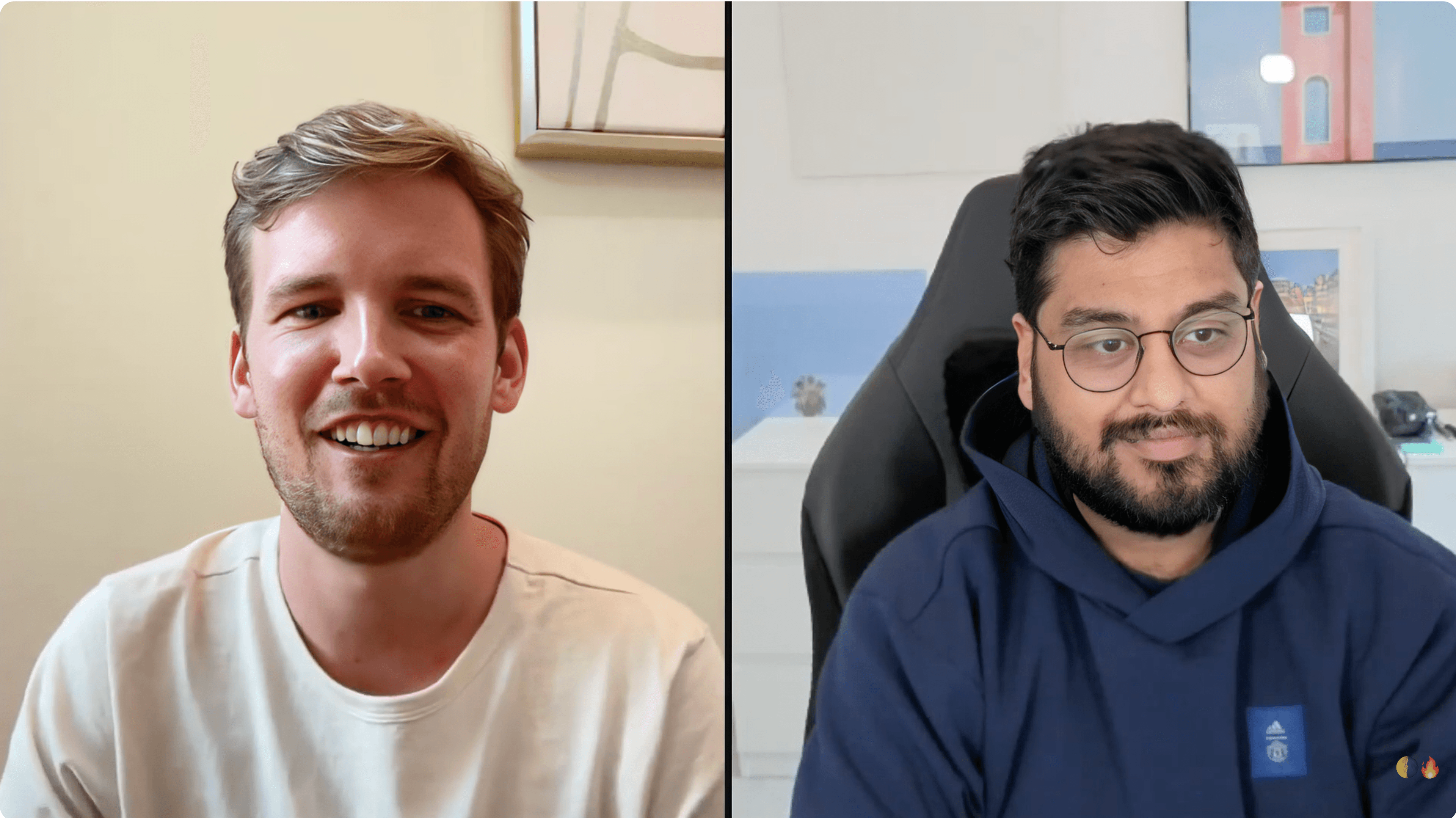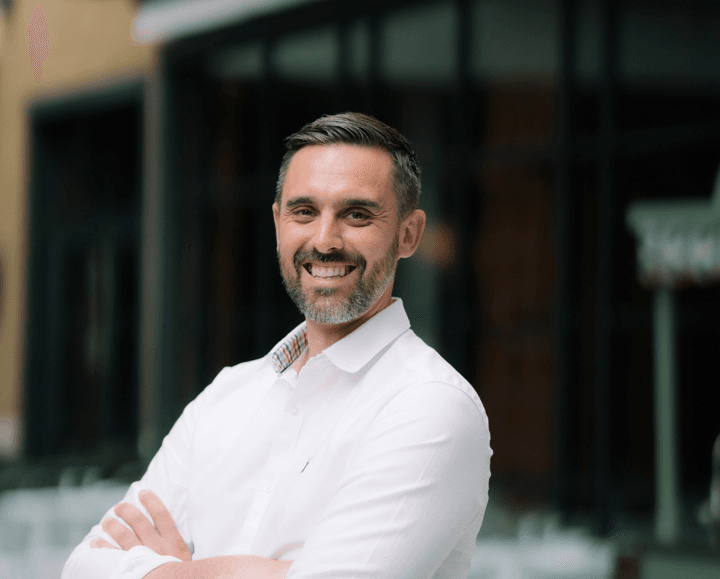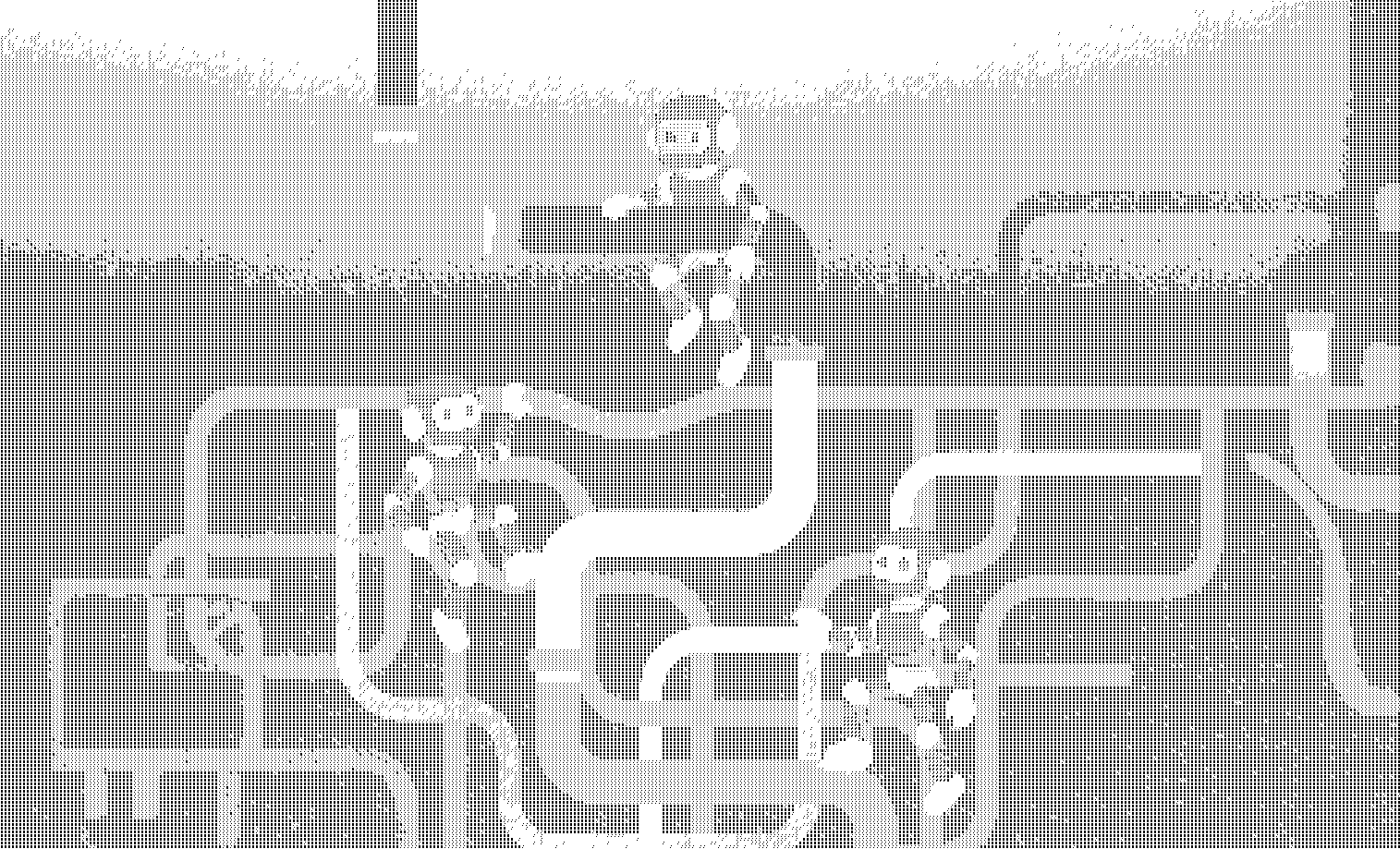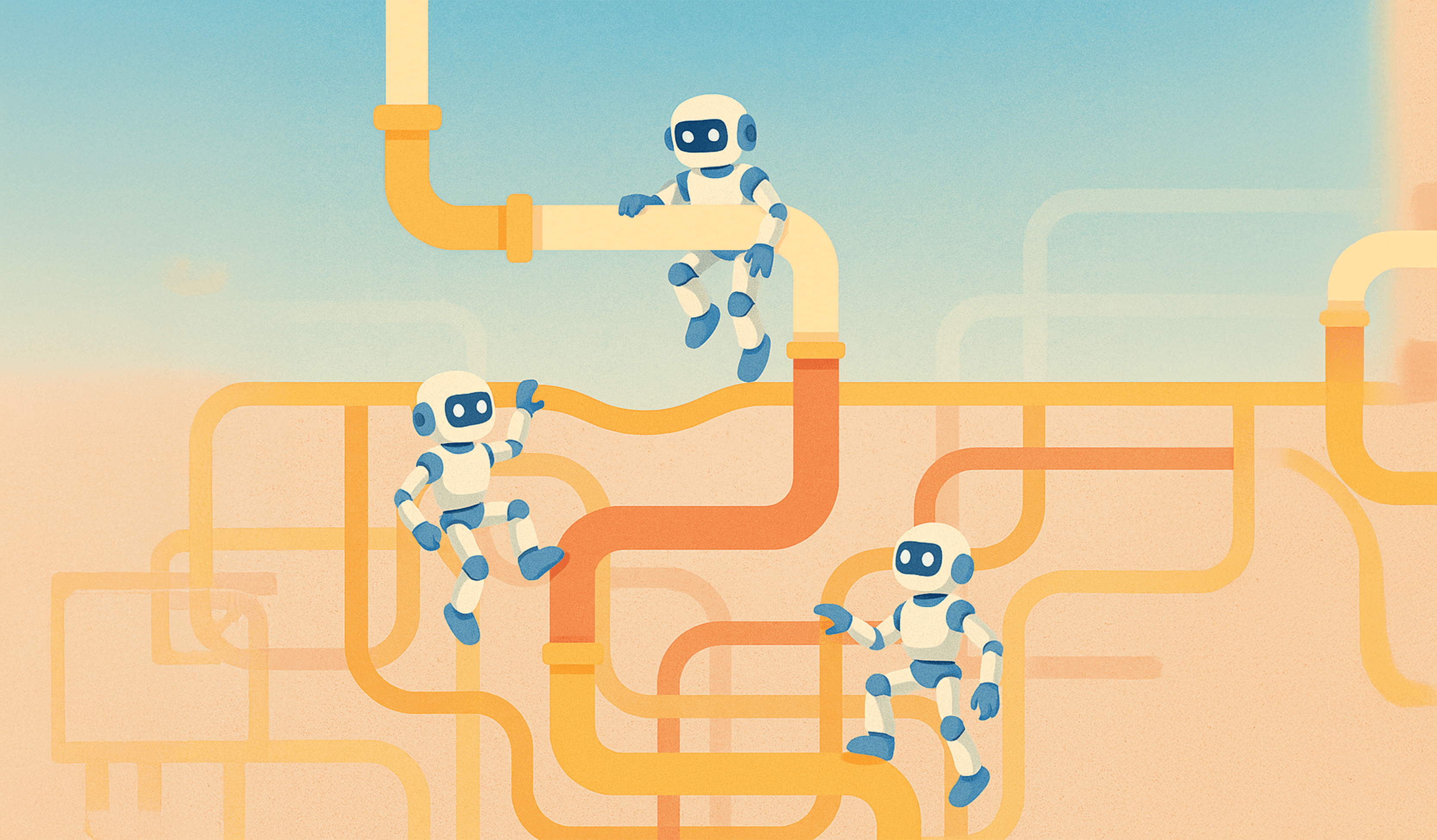Portfolio-29/10/2025
Kernel: Plumbers of the AI revolution
Akshat Goenka sat down with Anders Krohn, Founder and CEO of Kernel, to talk about what he learned from his first businesses, serving big US clients from Europe, and his ambition to build a digital twin of the entire global B2B economy.

→ Watch a highlight of this conversation - Anders' bold vision for Kernel.
The origins of Kernel
Akshat: I think to start off with, we'd love to understand a little bit about what Kernel is. Tell us a little bit about the company in your own words.
Anders: So really, the founding insight behind what is now Kernel is this realisation that, when it comes to deploying AI in enterprise, it's very much a garbage-in, garbage-out situation, and we very much learned that the hard way!
Our very first product, before Moonfire invested, was a sort of autonomous AI Sales Development Representative, and we basically spent the better part of six months crying inside of Salesforce.
It was just so clear that the data was not good enough to reliably use LLMs at scale in an enterprise setting. And so we pivoted away from that to dedicate ourselves entirely to solving some of these hard data problems inside of enterprise systems, and really retaining this long-term mission of - how do we solve the garbage-in, garbage-out problem?
“Today, we work with enterprise revenue operations teams at many of the fastest-growing technology companies and leading enterprises in the world”
Specifically today, we work with enterprise revenue operations teams at many of the fastest growing technology companies and leading enterprises in the world, like Remote, Navan, Zip, Gong, and many others, to help them build confidence in their CRM.
The way that Kernel works is that we have entity database, which you can think of as like sort of a digital representation of the B2B economy that's structured in a way where it's easy for AI to extract information, and then our customers use that to clean their CRM, like removing duplicates, building family trees and so on, enrich their CRM and to find all the accounts that should be in their CRM.
And so, I was meeting with one of our customers yesterday, and they use it for all global planning, like, how many reps should we have? How big is our addressable market? How should we approach it? How should we segment it? And so, that’s where we are, and we're very excited for the journey ahead.
AG: From day one, we have been pretty amazed by just how thoughtful you are in terms of both the roadmap ahead, but also in terms of looking at data, not falling into any traps of strong opinions, strongly held; but looking at trends, and then generally -- pivot is too hard of a term -- but, keeping the mission the same and adjusting the company to actually follow the right problem statement or technology statement. That is obviously bearing fruit. If you talk to a lot of the amazing customers that you have, they seem to love you. And that's partly due to some of the transitions that you made.
Early ventures and lessons learned
AG: Before we talk a little bit more about the company, I'd love to learn a little bit more about you. You've been a founder already, in the notoriously difficult category of EdTech. You know how hard the lifestyle of a founder is: what made you want to do it again? And how are you approaching it differently?
AK: So, I started my first business when I was a student, and in many ways that was a bit random. I was planning to be a consultant or a banker, or an academic. I don't think I had a very clear reference point in terms of entrepreneurship, and then one day, one of my best friends came to me and said, I think we should start a business.
“I started my first business when I was a student…I think probably perseverance to the point of delusion is the right way to explain it”
And I was like, well, I can dedicate, like, five hours a week, but then we got started. And once I got into it, I just couldn't stop. I think probably perseverance to the point of delusion is the right way to explain it, but the original jump into entrepreneurship was probably more random than anything else.
My first business sold learning platforms to universities to help them transition on-campus teaching and make it more engaging online, and that was hard.
Ultimately and unfortunately, the business was not financially successful. It was not the kind of business that we wanted to build, but we created a lot of value for our customers, and we ended up selling it to them, and it still runs today as a university subsidiary with a lot of users, and it plays a key role in that ecosystem.
“Market selection matters and markets can crush even entrepreneurs with the best of intentions”
I think that I took two key lessons away from that journey. One, market selection matters, and markets can crush even entrepreneurs with the best of intentions. I absolutely loved our key customers, but the market just didn't turn fast enough. And that's what I ultimately told them. This is not the kind of business that we needed to be, and I think the industry needs a different kind of vehicle. Market selection was very important to me.
The second lesson I learnt is to be more honest about who I am as an entrepreneur. I think as a first-time founder, you prioritise popularity over respect, but at the end of the day, I'm accountable for the success of this organisation and it’s important to be honest in that.
A very specific example of that would be when it comes to bringing people into the organisation. I want to say, like “this is me.” You can speak with people who work with me, and you will find many people who say that their career went vertical.
“I have only one gear, and I think being honest about that is very important”
And you will find some people who say “Anders is a nice guy, but it's too much” and I wouldn't want to work here again, not because he's an asshole, just because I only have one gear, and I think being being honest about that is very important, because it means you can create an organisation as you intend it to be. With my first business, we spent quite a lot of time thinking about ways of working, probably because I was not clear enough in terms of what my preference would be.
So those would be the two things: market selection and being more authentic.
AG: Even from the outside looking in, with a vested interest, it's been pretty tremendous to see how you've been true to who you are, even if it's frustrating at times. You've been incredibly authentic about the type of company you want to build and like the learnings from Aula, but at the same time, you've been very adaptable and malleable when it comes to understanding your customers and how to better solve their problems.
So how do you go about doing that? How do you go about creating a truly customer-obsessed company that truly wants to learn about its customers in a deep manner? And what have been some key learnings that you have built on top of that?
AK: In terms of building, the key learnings are: One, assume you're wrong. So be wrong fast. In my first business, I was sometimes perseverant where I shouldn't have been.
“In my first business, I was sometimes perseverant where I shouldn't have been”
The second thing is more of a philosophy about how to build: I very much believe that in B2B enterprise software, you should expose yourself to the pain that your customers are feeling. Some entrepreneurs do that because they've literally done the job of the people they sell to, but that's not the case for me. I've not been a RevOps person. So the way that we've done it is almost a forward-deployed model. We've been very focused on what is the outcome our customer is trying to achieve, and how are we going to achieve it, either with software or humans? Doing that exposes you to the pain of the customer and allows you to see what the real challenges are.
If you look at the Kernel story, we originally thought we were going to use LLMs everywhere, we’ll get them to automate everything. Then we realised the data is not good enough to do that. Then we realised that the data behind the data is not good enough. When you get into an enterprise CRM at a certain scale, corporate entities and hierarchies drive all data, and once you see it, you can't unsee it. And I think having the humbleness to say that our initial hypothesis was wrong allows us to better solve the problem. For our customers to solve it, we have to take the customer on that journey, whilst still retaining our product vision.
The future of AI
AG: Yes, it's so important to have clear, understandable data. Right now there's a self-fulfilling belief in the VC tech ecosystem that AI and LLMs can do everything and anything. So, from your vantage point, are there specific areas where you think AI is going to meet or overdeliver, and are there areas where you think it's just not going to meet them?
AK: Let's start with where I think AI will underdeliver. I'm in SF for a month. I was at Agentforce, the Salesforce conference, last week. In the short term, there will be some absolutely terrible agent deployments where they depend on data within the enterprise systems, and I can see that from our customers as well. The key insight here is that humans know that they don't have confidence in data. AI doesn't.
“When I walked around the Agentforce conference, I was like, Oh my god, this is going to go so wrong!”
So if you take a CRM, we used to live in a world where people would go “yeah it’s OK, the sales rep will fix it.” AI doesn't know that. AI doesn't know when things are clearly wrong. That's where I think we'll see AI significantly underdeliver. Almost to the point when I walked around the Agentforce conference, I was like, “Oh my god, this is going to go so wrong!” That's not to say that we won't get there eventually and I think Kernel will play a huge part in that as the cleaners and plumbers of the enterprise AI revolution.
Where do I think AI will overdeliver? I'm very bullish on codegen. I know that's probably a pretty norm-core answer these days, but my engineers and I have spent quite a bit of time with Claude code. I can see this is pretty solid, and we'll probably underestimate the impact that code generation will have on other domains as well, both from a productivity perspective in terms of like, how do people who are not engineers contribute to things that require software that they previously couldn’t.
“We probably underestimate the impact that code generation will have”
But also from a product perspective, how do we use language models in a way where just straight up using an LLM doesn't give enough accuracy, but using it in the context of codegen might. That's something I'm very bullish on.
AG: I completely agree. The productivity gains are massive. And then you start thinking about that and from my perspective, when you start taking any personal context, skill sets, organisational requirements, into account, you suddenly have a tool set that's very valuable. In addition to just generating code, it can help you push the technology in the right direction, which is fantastic.
Why Moonfire?
AG: We've been fortunate to have a front seat with Kernel from your very first raise, and there’s something I've never had the chance to ask you: why did you choose Moonfire as a partner out of all your options?
AK: There are really two reasons we chose Moonfire. The first one is that when we met, you had clearly thought about the space at a deeper level than other VCs, which creates a natural connection.
“At a meta-level, Moonfire has internal technical competence that's focused on solving some of the same problems that we're solving for our customers”
Secondly, at a meta-level, Moonfire has internal technical competence that's focused on solving some of the same problems that we're solving for our customers. And that was very attractive. Knowing that we are working with someone who is dealing with some of the same problems, albeit from their own perspective. So the conversation with Mike and team was a big part of the decision as well.
AG: Thank you. Those are both areas that we're really doubling down on and we are consistently seeing that message from founders we work with, and there’s so much more to do.
Given we’ve talked a little about codegen already, OpenAI or Anthropic, or something else? Who are you backing?
AK: Whoever gives the most credits!
AG: Nice.
AK: I say that jokingly, but it's actually not a joke. LLM spend is a huge part of our P&L, and it's moving so fast that I think just betting on a single horse is the wrong move outside of certain domains.
So for us, it's much more a question of how do we deliver value for our customers and learn in a way where we don't just donate money from Moonfire to Sam Altman.
AG: It's funny you say that because a big part of our value creation for a lot of our portfolio companies at the moment, is helping them figure out their inference stack and their AI infrastructure to, decrease the spend on hyperscalers and decrease the spend on these APIs, because it's getting a little bit out of hand.
And that spiral is hard to break if you don't think about it from day one. Which is somewhere that Mike and his team have been pretty invaluable for the companies that they've worked with.
Building a global-first business
AG: You're currently in SF. London or SF, which city do you particularly vibe with?
AK: I have to give a politician’s answer…
AG: Go for it!
AK: In general, where your customers are, and we have amazing customers in SF, London, New York and elsewhere. It was a big priority for us to build a global-first business from day one.
I think if I had to bet on a city, I would bet on SF. If I had to bet on a company, I would bet on Kernel. And if I had to choose companies over cities, I would choose companies.
And we're trying to figure out what the right balance is for us. One thing that does concern me as a founder in Europe isn’t capital and talent. There are great investors in Europe and there are great people. I'm more concerned about culture.
The problem with culture is that it is much harder to change than capital and talent, and I can sort of see it in our recruitment processes.
“If I had to bet on a city, I would bet on SF. If I had to bet on a company, I would bet on Kernel. And if I had to choose companies over cities, I would choose companies”
So, we serve the US from London. We're very explicit with people who join Kernel that we're building a global business. You will be joining a London team with a lot of customers in SF, including some very prominent ones that we want to give an amazing experience to.
We're obviously not being stupid about it's not like we schedule calls in the middle of the night for fun. But we want to support our US customers, and I'm sometimes surprised when I interview people in Europe and they’re like “hmmmmmmmmmm”. But that’s what it takes and this makes me a bit sad.
I have a feeling that is definitely different here but the flip side of that is you probably have a slightly more “transactional labor market” in SF, where people are more likely to go to the next shiny thing, and that makes it hard to hire.
Whereas in London, we have an incredibly loyal team, which I really value, and we also have a team that works extremely hard and supports our US customers. But sometimes in the recruitment process, I'm like “this is just not going to fly”, and that makes me sad to be honest.
AG: I think it's evolving and I do think it's improving and you're seeing hypergrowth, you're seeing traditional mid-market customers in Europe look for and adapt to technology shifts and these companies are embracing new technology in general. So I do think it's evolving, but I couldn't agree more, having lived in both of these regions myself.
Founder-led scaling
AG: You touched on recruitment there. I must say I have been so impressed by the fact that your team members who joined Kernel then wear the Kernel badge with so much pride. It's very clear that this company has a sense of belonging to it, and all the employees are mission-aligned with the overall vision of Kernel.
This is something that you and your team must have worked on together, and it’s fantastic to see. But talking about recruitment a little bit more generally, you obviously just raised a very exciting round of funding recently: what kind of profiles are you going to be hiring for next? Is there anything that you're really looking for?
AK: Senior IC engineers in London who want to solve large-scale problems with a small team that's moving extremely fast. That is the top, top priority for us.
We have an extremely exciting engineering challenge ahead of us, because we operate at a scale that's more akin to what a very large business would do due to the nature of our product, with a very small team, which is very exciting from an engineering perspective.
But getting engineers who can pass that bar is not trivial. And so when people ask me, “If you could hire anyone, who would you hire?” I say I love my team. We have a phenomenal team. There are no major changes or major missing things, of course we have a few open roles here and there. We might tweak things on the edges, but I just want more senior IC engineers. That's the honest answer.
AG: Makes sense. And as you’re growing do you anticipate sales and customer support becoming more important?
AK: The composition of the current team is that we have a lot of very smart generalist people. Now, we have a few more people who have more specialist knowledge. Yes, of course we will have more sales people. But, I would say the leadership team right now is pretty complete for the stage that we're at.
I'm very close to the commercial side of the organisation, where my co-founder, Marcus, is very close to everything product and engineering.
“At Kernel, we took founder-led sales very very far”
So I don't have a desire to go out and hire a new shiny exec. If anything, I want to make sure we keep it fairly flat, so that Marcus and I are exposed for as long as possible to where it really matters. I think a mistake I've made many times in the past is these false-start execs.
So we took the opposite approach at Kernel, we took founder-led sales very very far. We have a team around me to make sure that I could have that leverage. Now that we have account executives that report directly to me, and we have a team around them as well, to make sure we sort of translate how I sell, to them. Rather than hiring a Chief Revenue Officer, I would have to close my eyes, pray for good weather and go through 50 account executives a year.
AG: That approach makes a bunch of sense. I've been asking this to everyone building in AI: what's the boldest prediction that you have - it doesn't have to be AI related - about the next five years?
The big vision for Kernel
AK: I'll take it for Kernel specifically. I think that the boldest version of Kernel in the next five years will be essentially a digital twin of the entire global B2B economy that's structured in a way where AIs can talk within it. That's the core asset that we're building right now, predominantly, that’s used in Rev-ops scenes. But behind the scenes, we have this database of all corporate entities in the world. We'll have all the web data, all the financial data. Eventually, we might also have all their ESG data, the shipping groups, the credit data, and so on, structured in a way that's squeaky clean for AI to talk to.
And that has huge implications, not just for RevOps, but how companies deploy AI anywhere within enterprise. So that's the Kernel bold prediction.
→ Learn more about Kernel at kernel.ai
Authors







